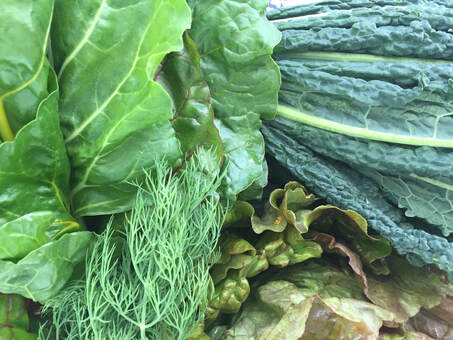|
|
Anyone can experience difficulty keeping the water and earth elements associating harmoniously with one another during springtime. |
|
Spring is Kapha season
Spring is Kapha season, the dosha of structure, form and stability. Doshas are unifying principles that keep the Panchamahabhutas, the five great elements of earth, water, fire, air and space associated with one another. Kapha is the force that keeps water and earth working together harmoniously. The gunas, or qualities of Kapha, are slow, dull, cool, dense, liquid, soft, heavy, oily, smooth, sticky, static and gross. These qualities assist Kapha in providing structure, lubrication and cohesiveness. Kapha is responsible for keeping all the cells and systems of the body hydrated and lubricated. Kapha is the dosha of childhood; think of the round plumpness of babies and small children. It also rules the daily calendar from about 6AM - 10AM and again from 6PM - 10PM.
Kapha’s watery quality keeps the skin and tissues moist; the oily earthiness provides protection and immunity. Kapha embodies love, devotion and compassion. Lord Jupiter, ruler of this auspicious and benevolent planet, is said to have a Kapha constitution. Signs of excess Kapha are weight gain, lethargy, edema, sluggish digestion, stagnation, poor circulation, foggy brain, complacency, possessiveness, greed and sentimentality. Respiratory and stomach problems are common.
Kapha’s watery quality keeps the skin and tissues moist; the oily earthiness provides protection and immunity. Kapha embodies love, devotion and compassion. Lord Jupiter, ruler of this auspicious and benevolent planet, is said to have a Kapha constitution. Signs of excess Kapha are weight gain, lethargy, edema, sluggish digestion, stagnation, poor circulation, foggy brain, complacency, possessiveness, greed and sentimentality. Respiratory and stomach problems are common.
The Sweetness of Spring
The ground is still cold in spring but water abounds. Sap is rising in the trees, new shoots push through to greet the lengthening daylight. Rivers and streams are full from rain and/or snowmelt. Weather is unpredictable: cold and rainy one day and sunny the next. Internally we are prone to damp heat as our blood, enriched from the melt of winter’s fat, congests the circulatory system, making us vulnerable to upper respiratory infections.
Bitter, astringent and pungent tastes which oppose the oily richness of Kapha should be more abundant in food: bitter greens like arugula, kale, chicory, celery and pungent vegetables and spices like onions, garlic, pepper, ginger, cinnamon and chili. Legumes are indispensable for their astringency. Vegetables, freshly cooked with little oil, should dominate for Kapha types and they need vigorous exercise. Diet and lifestyle should incorporate warmth, dryness and stimulation.
Bitter, astringent and pungent tastes which oppose the oily richness of Kapha should be more abundant in food: bitter greens like arugula, kale, chicory, celery and pungent vegetables and spices like onions, garlic, pepper, ginger, cinnamon and chili. Legumes are indispensable for their astringency. Vegetables, freshly cooked with little oil, should dominate for Kapha types and they need vigorous exercise. Diet and lifestyle should incorporate warmth, dryness and stimulation.
Bitter, Pungent and Astringent Tastes
With awareness of our internal gunas and those of our environment, we can make choices every second to keep balanced. Like increases like, so having heavy, oily foods like fried chicken or cheese pizza will likely increase those qualities. As opposites decrease, a spicy Thai vegetable curry, lentil soup or stewed spicy collard greens will introduce lightness, astringency thus dryness and pungency to move stagnation and counter heaviness. Aggravated Kapha will prefer to nap or choose restorative yoga poses when they need vigorous asanas.
Health is Bliss
Ayurveda is a science in which health is much more than the absence of disease. According to the Sushruta Samhita 15.38, one of the principal Ayurvedic texts:
"One who is established in Self, who has balanced doshas, balanced Agni, properly formed dhatus/tissue, proper elimination of malas/waste, well-functioning bodily processes, and whose mind soul and senses are full of bliss, is called a healthy person."
"One who is established in Self, who has balanced doshas, balanced Agni, properly formed dhatus/tissue, proper elimination of malas/waste, well-functioning bodily processes, and whose mind soul and senses are full of bliss, is called a healthy person."





